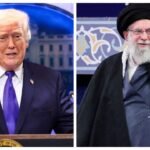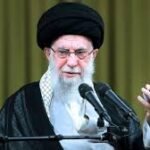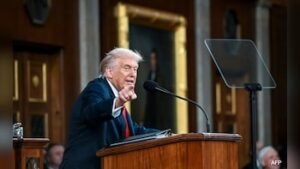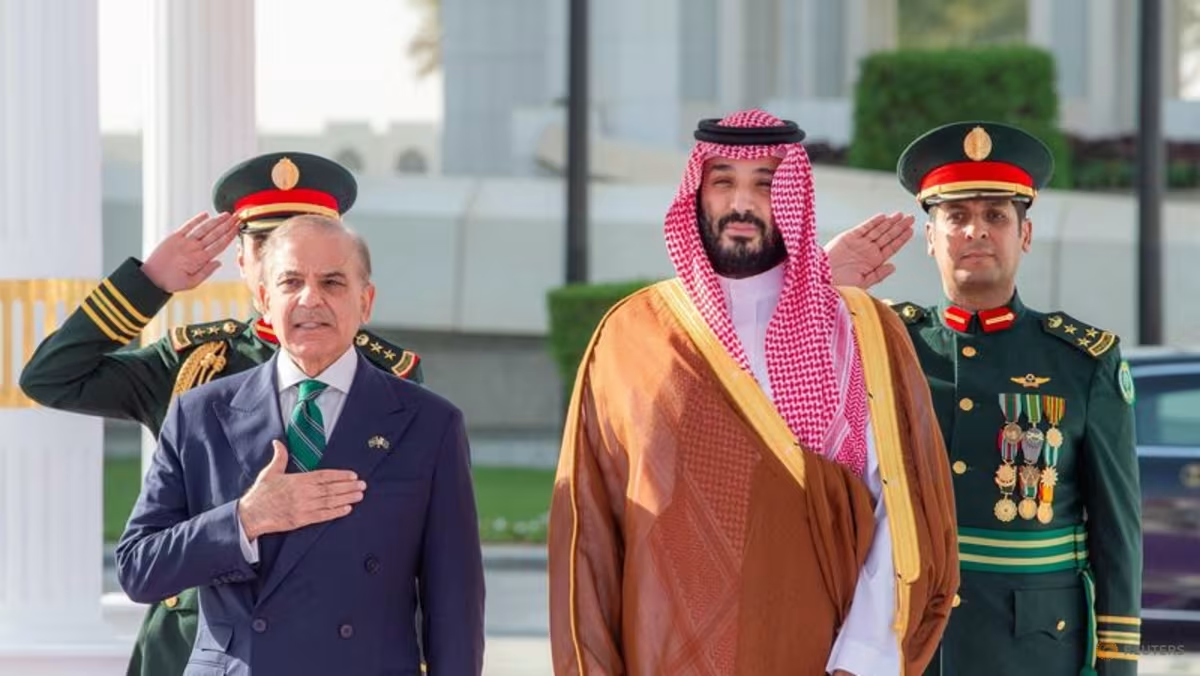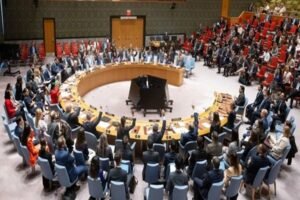With Saudi Arabia and Pakistan signing a formal mutual defence pact which states that “any aggression against either country shall be considered an aggression against both”, India said Thursday it will “study the implications” of this development for its “national security as well as for regional and global stability”, and is committed to “protecting India’s national interests”.
Delhi also said that the Indian government was “aware” that this development had been “under consideration”. Sources said the Saudis had kept India “in the loop” about the formalisation of the defence partnership between Riyadh and Rawalpindi.
Sources pointed out that Saudi Arabia has been one of the major hubs for re-employment of former Pakistan Army officers — the most famous example was the appointment in 2017 of former Pakistan Army chief General Raheel Sharif as the lead commander of the Saudi-led forces against terror.
The defence pact is being read in Delhi as a response to Washington’s retrenchment from the region as a security provider, and Israel’s attack on Hamas leaders in Qatar’s capital Doha and the geopolitical ramifications across the region. Israel’s aggressive behaviour – it has attacked countries in the region including Iran, Lebanon, Syria and Qatar – has alarmed many in West Asia. The Saudi-Pakistan pact is being viewed as a step towards formalising a collective security against Israel.
Saudi Arabia’s Crown Prince Mohammed bin Salman signed the pact Wednesday with Pakistan Prime Minister Shehbaz Sharif in the presence of Pakistan Army chief Asim Munir.
The agreement states “any aggression against either country shall be considered an aggression against both,” according to statements issued by both Pakistan’s Foreign Affairs Ministry and the state-run Saudi Press Agency.
“This agreement … aims to develop aspects of defence cooperation between the two countries and strengthen joint deterrence against any aggression,” the statement said.
Randhir Jaiswal, spokesperson for the Ministry of External Affairs, said, “We have seen reports of the signing of a strategic mutual defence pact between Saudi Arabia and Pakistan. The Government was aware that this development, which formalises a long-standing arrangement between the two countries, had been under consideration.”
“We will study the implications of this development for our national security as well as for regional and global stability. The Government remains committed to protecting India’s national interests and ensuring comprehensive national security in all domains,” it said.
While Saudi Arabia and Pakistan have had a long security partnership, India has developed a strong and robust relationship with Saudi Arabia in the last decade or so.
Pakistan’s troops first travelled to Saudi Arabia in the late 1960s over concerns about Egypt’s war in Yemen at the time. Cooperation between the two countries in the area of defence dates back to 1967 and deepened after the 1979 Grand Mosque seizure in Mecca, when Pakistan’s special forces helped Saudi troops reclaim Masjid al-Haram.
In 1982, the two sides institutionalised security ties through a Bilateral Security Cooperation Agreement that enabled Pakistani training, advisory support and deployments on Saudi soil. At times, as many as 20,000 Pakistani troops were stationed in the kingdom, and Saudi Arabia became a key buyer of Pakistan-made arms.
India’s relationship with Saudi Arabia has undergone a tremendous change in the last two decades.
Since the visit of King Abdullah to India in January 2006, the pathway has been upward with Prime Minister Manmohan Singh visiting Saudi Arabia in 2010.
In the last decade or so, Prime Minister Narendra Modi, who invested in the relationship, gave it a huge fillip by visiting Riyadh in April 2016, followed by the visit of Prince Mohammad bin Salman, Crown Prince of Saudi Arabia, to India in February 2019. The visits continued with Modi in 2019 and MBS in 2023 for the G20 leaders summit and a bilateral visit.
Bilateral trade ties have steadily grown over the years. India is the second largest trade partner of Saudi Arabia whereas Saudi Arabia is the fifth largest trading partner of India.
In FY 2023-24, bilateral trade stood at USD 42.98 billion, with Indian exports at USD 11.56 billion and imports at USD 31.42 billion.
Indian investments in Saudi Arabia have also increased in recent years, reaching a cumulative figure of approximately USD 3 billion in August 2023. The Saudi investment in India including that of PIF, other Saudi companies and Saudi backed Vision Fund, has been about USD 10 billion.
The Indian community in Saudi Arabia numbers at about 27 lakh people, and has a good reputation in the kingdom.
So, at this time of strong and deep partnership between India and Saudi Arabia, the pact between Riyadh and Islamabad is being closely watched in Delhi.
India is treating this development cautiously since it involves Saudi Arabia, one of its close strategic partners in the Gulf region, and Pakistan where it struck terror targets in May in response to the Pahalgam attack.
Saudi Arabia had condemned the Pahalgam terror attack which took place while Modi was visiting the country at that time. Later, Saudi Minister of State for Foreign Affairs Adel al-Jubeir had visited unannounced during Operation Sindoor, after visiting Pakistan.
In the past, Saudi Arabia had not made too much of strong criticism of the abrogation of Art 370 from Jammu and Kashmir. Also, it had condemned the Pulwama terror attack in February 2019, and had not condemned the Balakot strikes, but had also sent al-Jubeir as an emissary to India in 2019. Saudis have sought to talk to both Indian and Pakistan’s leaders during these times of crisis and conflict — and have not taken sides in the recent tensions between the two countries.
In this kind of a regional dynamic, Delhi would be exchanging notes with Riyadh on the potential cooperation between Rawalpindi and the Saudis. Sources said there will be conversations at various levels on this, as Delhi re-assesses Pakistan’s force posture in the borders. “We will be having several conversations internally and externally about the potential ramifications of this,” a source said.

